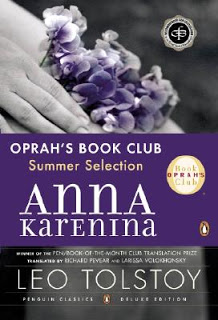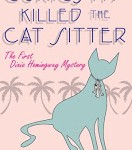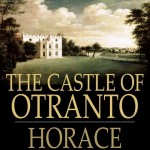I was recently alerted to the fact that Oprah is hosting a summer book club. Well, actually her producer seems to be conducting it, which is maybe why it hasn’t been as well publicized as other Oprah reading events. Leading up to picking the title, a request went out to help pick the selection: the criteria for suggestions? The book needed to be a classic.
 To me, the summer seems like a great time to catch up on classic or to involve yourself in some ambitious reading. It’s a time when I actually have a few moments to sit down and devote myself to a title and am maybe already relaxed enough that I can read something a bit meaty.
To me, the summer seems like a great time to catch up on classic or to involve yourself in some ambitious reading. It’s a time when I actually have a few moments to sit down and devote myself to a title and am maybe already relaxed enough that I can read something a bit meaty.
The first time I tried this, I tackled Anna Karenina. If you’re looking for a long summer read, this is a great one. Romance and betrayal and beautiful descriptions. In addition to the plot of the book, I have a very visual recollection of this book: summers in an elaborate villa, winters in the city, labouring in the fields and seeing and being seen at a horse race – all of which somehow appeal to me in the mindset of summer. I actually read this again several summers later.


 This summer I am determined to finish Infinite Jest by David Foster Wallace and apparently I’m not alone. A friend just sent me an email to the website Infinite Summer, which is a blog that is trying to encourage to read Infinite Jest this summer – complete with suggested reading schedule (don’t worry, you’re only a little behind!) Although only slightly over 10 years old, the novel is already considered a classic of post-modernism (or post-post-modernism, depending on who you ask) which Kirkus reviews described as a “raucous, Falstaffian, deadly serious vision of a cartwheeling culture in the self-pleasuring throes of self-destruction…”It’s very ambitious, very convoluted and very, very funny and I’m excited to see it through to the end.
This summer I am determined to finish Infinite Jest by David Foster Wallace and apparently I’m not alone. A friend just sent me an email to the website Infinite Summer, which is a blog that is trying to encourage to read Infinite Jest this summer – complete with suggested reading schedule (don’t worry, you’re only a little behind!) Although only slightly over 10 years old, the novel is already considered a classic of post-modernism (or post-post-modernism, depending on who you ask) which Kirkus reviews described as a “raucous, Falstaffian, deadly serious vision of a cartwheeling culture in the self-pleasuring throes of self-destruction…”It’s very ambitious, very convoluted and very, very funny and I’m excited to see it through to the end.
Oh, and back to the start of this post. If you want to join along with Oprah’s producer and her summer book club, they are reading Middlemarch, the classic novel of British provincial life.
*-this vintage post was first published August 2009
Source: http://www.thereader.ca/2008/06/staff-picks-classics-for-summer.html



